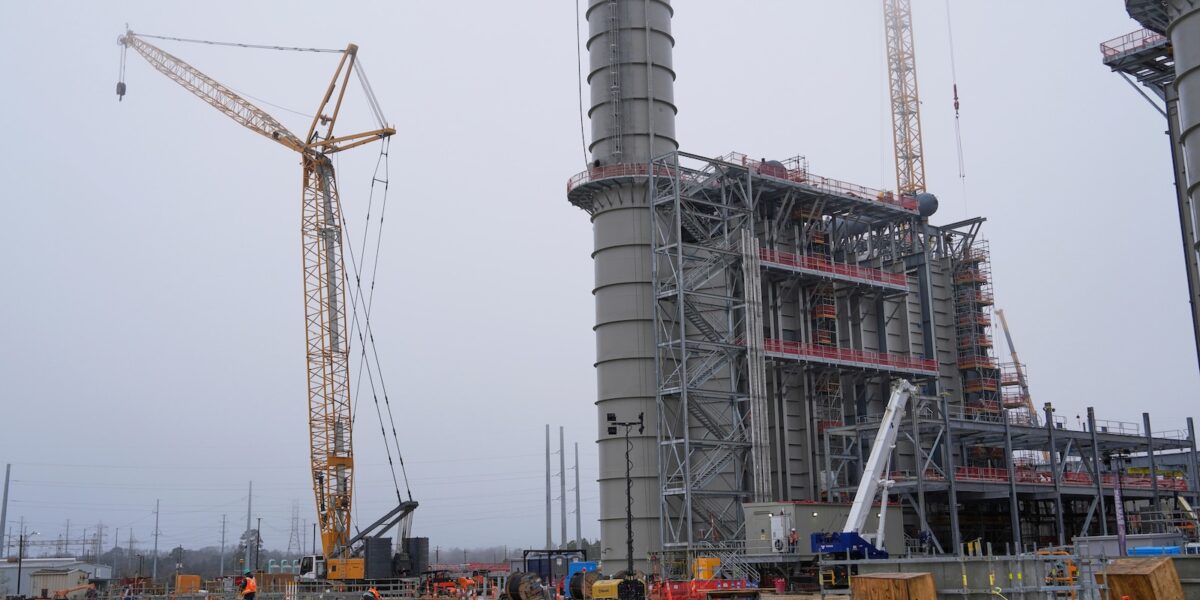HARRISBURG, Pa. — Facing projections of spiking energy demand, U.S. states are pressing for ways to build new power plants faster as policymakers increasingly worry about protecting their residents and economies from rising electric bills, power outages and other consequences of falling behind Big Tech in a race for electricity.
Some states are dangling financial incentives. Others are undoing decades of regulatory structures in what they frame as a race to serve the basic needs of residents, avoid a catastrophe and keep their economies on track in a fast-electrifying society.
“I don’t think we’ve seen anything quite like this,” said Todd Snitchler, president and CEO of the Electric Power Supply Association, which represents independent power plant owners.
The spike in demand for electricity is being driven, in large part, by the artificial intelligence race as tech companies are snapping up real estate and seeking power to feed their energy-hungry data centers. Federal incentives to rebuild the manufacturing sector also are helping drive demand.
In some cases, Big Tech is arranging its own power projects.
But energy companies also are searching for ways to capitalize on opportunities afforded by the first big increase in electricity consumption in a couple of decades, and that is pitting state political leaders against each other for the new jobs and investment that come with new power plants.
Moves by states come as a fossil fuel – friendly President Donald Trump and Republican-controlled Congress take power in Washington, D.C., slashing regulations around oil and gas, boostingdrilling opportunities and encouraging the construction of pipelines and refineries that can export liquefied natural gas.
States are seeking action, with the National Governors Association asking Congress to make it easier and faster to build power plants and criticizing the U.S. as among the slowest developed nations in approving energy projects.
But there may be less that the federal government can do right away about a looming power shortage, since greenlighting power plants to feed the electric grid is largely the province of state regulators and regional grid operators.
Pennsylvania Gov. Josh Shapiro wants to establish an agency to fast-track the construction of big power plants and dangle hundreds of millions of dollars in tax breaks for projects providing electricity to the grid.
The state, and the country, needs more power plants to win the artificial intelligence race and provide reliable and affordable power to residents, said Shapiro, who suggested Pennsylvania may leave the regional grid operated by PJM Interconnection in favor of “going it alone.”
“It has proven over the last number of years too darn hard to get enough new generation projects off the ground because of how slow PJM‘s queue is,” Shapiro told a news conference on Feb. 27.
Indiana, Michigan and Louisiana are exploring ideas to attract nuclear power while Maryland lawmakers are floating ideas about commissioning the construction of a new power plant there.
In Ohio, a lawmaker wants to restrict the influence of electric utilities in hopes of giving independent power producers more incentive to build power plants to feed the state’s fast-growing tech sector.
The bill, which awaits a vote, won the support of the Ohio Consumers’ Counsel, the state’s residential ratepayer watchdog, and business groups whose members care about electric prices. However, it split the energy sector between companies operating in competitive markets and those operating under state utility monopolies.
In Missouri, utilities including Ameren and Evergy, as well as the Missouri Chamber of Commerce and Industry, labor unions and the state’s top utility regulator are backing legislation to repeal a nearly half-century old law preventing utilities from charging customers to build a power plant until it is operational.
The law was approved in a 1976 voter referendum when states were looking to hedge against utilities saddling ratepayers with financing upfront, potentially bloated, inefficient or, worse, aborted power projects.
Consumer and environmental groups protested the bill, saying it would result in new natural gas plants that are likelier to be more costly to ratepayers.
Last year, similar legislation passed almost unanimously in Kansas, along with companion legislation extending tax breaks to new power plants.
Within months, Evergy announced alongside the state’s leaders that it would build two 705-megawatt natural gas plants and said the legislation will “help Kansas compete with other states for investment and ultimately save customers money.”
John Coffman, the utility consumer counsel for the Consumers Council of Missouri, said utilities are playing the two states, Missouri and Kansas, against each other and were planning to build the power plants anyway.
But, he said, “They’re just looking for opportunities to squeeze more money out of the process.”
Snitchler said action is being spurred by states realizing that longstanding power reserves are dwindling, especially as coal-fired and nuclear power plants retire, and now all sorts of power companies are leaping at the chance to make money.
A pitfall he sees in the race to build plants is an undoing of protections that some states once adopted to shield ratepayers and put the risk of building expensive power projects onto corporate shareholders.
“The problem, of course, is it shifts the risk back on the people who perhaps should not be bearing it,” Snitchler said.
A Pennsylvania state lawmaker, Sen. Gene Yaw, wants to set up a massive power plant-financing fund like Texas, which established a $10 billion low-interest loan program after the state was wracked by a deadly winter blackout in 2021.
Yaw, a Republican, has no misgivings about Pennsylvania helping finance power plants. Even by conservative estimates, the state will need dozens more power plants to meet projections of rising demand, he said.
“And what do we have underway or planned right now? Nothing,” Yaw said. “And we haven’t built anything since 2019. So we’ve got to do something to encourage people to come here and build in Pennsylvania just to maintain the status quo.”
___
Follow Marc Levy on X at https://x.com/timelywriter.


